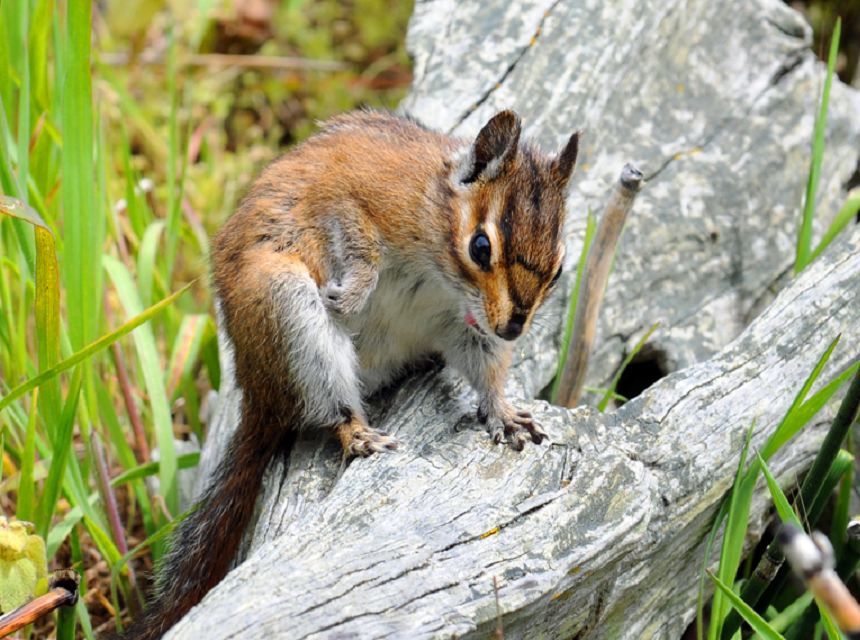

Generally, people are often scared of rodents and tend to avoid them, but the chipmunk is an exception. Their large eyes, bushy tails, and cute chubby cheeks stand out, making them distinct from other rodents. They are even associated with Christmas!
However, despite their cute appearance, they are still rodents and will act like one. Chipmunks can often cause a nuisance to homes, farms, and gardens. One thing is sure, you do not want to find one crawling in your backyard.
Many of you might be wondering just how long do chipmunks live? Well, this article will provide a proper breakdown of the gestation and life cycle of this unique creature.
There are over 25 different chipmunk species Trusted Source Facts About Chipmunks | Chipmunk Facts | Havahart US Chipmunks are cute little creatures, but when they are ruining landscapes by digging holes around your lawn and garden, these rodents can become quite a nuisance. Learn more about these furry critters here. www.havahart.com . North America is home to these creatures, except the Tamias sibiricus, which is found in Asia. Regardless of this variety, each species has the same development life cycle.
Early summer and early fall are typically the birthing season for chipmunks. During this period, female chipmunks breed newborns after mating. The mating usually lasts for as long as six to seven hours during an estrus period.
Female chipmunks can birth as many as six baby chipmunks. These little creatures usually measure about 2 to inches after birth. Baby chipmunks are born blind and without fur until the second week. They begin to develop their sight by the fourth week.
Female chipmunks take care and nurture their offspring in an underground burrow while the pup gradually becomes mature. Signature markings, depending on the species, begin to appear around the third and fourth weeks.
Once the pups turn 40 days old, they will be free to leave the burrow and explore the outer surroundings. The female chipmunks continue to wean her baby chipmunks until they are mature enough to fend for themselves. After some time in the burrow (between four and seven weeks), the young chipmunk will join the latter mates and discover a new location to live.
After four to seven weeks, young chipmunks leave the underground burrow to adapt to the wildlife and fend for themselves. During this period, they begin to learn to scavenge for food and find a new Inhabitat.
Chipmunks experience rapid growth and can measure up to 10 inches after a few months. Those born in early summer will be fully grown by winter and be able to find new homes and store up enough acorns.
This separation forces them to invade and cause damage to gardens, farms, or backyards in search of food or habitat. If you’re facing difficulties catching Trusted Source Chipmunk Control | UGA Cooperative Extension This publication discusses several methods for controlling chipmunks, including exclusion, trapping, poison, repellents, and shooting. extension.uga.edu these rodents, check out the best chipmunk traps well suited for your use. According to reviews, the Kness Chipmunk Trap is an excellent choice. Don’t forget to put a bait in it, such as the NB Squirrel & Rodent Paste Bait, which proved to be quite effective against rodents.
The winter season is a period where chipmunks enter semi-hibernation. So the mating season occurs during early spring when the temperatures are warmer. A lot of mating happens from February through May. And if the weather is still warm and pleasant some chipmunk species may mate up to twice a year.
After the mating season, comes the gestation period of the female chipmunk. The gestation period for most species of chipmunk like the western and eastern chipmunks lasts for 31 days. The female chipmunk can give birth to up to eight children after their gestation cycle and one litter can produce about four or five babies.
The female chipmunks have two estrous cycles each year. One cycle takes place during spring, around March or April while the other cycle takes place in July and August.
Chipmunks generally live for two and four years. The lifespan often differs depending on the species. The environment where it lives also plays a major factor in its lifespan. If the weather conditions and food source are favourable, these creatures can live as long as 10 years.
Eastern chipmunks do not normally have a long lifespan, usually not exceeding 2 years. However, the ones that survive tend to live up to 8 years in the wild. When held in captivity, they can easily live for 8 years.

This species of chipmunk isn’t as common as the eastern chipmunks due to limited food sources which adversely affects their survival and reproduction rate.
Alpine Chipmunks are native to western North America and have a shorter lifespan than most species of chipmunks. They can live for 2 to 3 years in the wild. In some cases, they can live as long as 5 years but that is usually the maximum.
The lifespan of Siberian chipmunks falls between 2 and 5 years. However, this can stretch longer when they are held in captivity, from 6 to 10 years.
Some reports have surfaced of pet Siberian chipmunks that lived for about ten years and more.
The average Chipmunks’ lifespan regardless of its species, is generally between 2 to 5 years. Some species can survive for a longer time, up to 8 or 10 years. When kept in captivity, the lifespan of most chipmunks tends to stretch longer. This is due to the constant availability of food, absence of predation and secure habitat.
There are various factors that affect a chipmunk’s lifespan. Some of these reasons are unavoidable.
Recent studies have shown that chipmunks find it difficult to hibernate in humid weather. The increase in temperature may affect the hibernation process of chipmunks. However, those who follow the normal hibernation process are more likely to live longer.
Chipmunks are often easy prey when living in the wild. It is one of the major factors that lead to their high mortality rate, making it almost impossible for a chipmunk to complete a full year.
All species of chipmunks are susceptible to predatory attacks. The most vulnerable are the ones separated from their mother chipmunks after the first 4 to 7 weeks in the burrow.
Unlike Squirrels, chipmunks live on the ground and are likely to come under the wheel of vehicles. The chances of getting crushed by a moving vehicle are pretty high as it is quite difficult for drivers to spot these creatures on the road. This contributes to the increase in their mortality rate by up to 30%.
Chipmunks are quite susceptible to illness and can get a reduced lifespan if they develop ailments such as metabolic bone disease. This often occurs from a shortage of adequate calcium in the body.
It is pretty common among chipmunks when they consume a lot of acorns and nuts which are rich in phosphorus but lack calcium. You can also find out other things that chipmunks eat.
Many people have recently embraced the idea of having a chipmunk as a pet. Several experts have begun various extensive research to discover the best way to care for and nurture them. Generally, chipmunks live for 2 to 5 years and having them as pets (in captivity) means that they can live 8 to 10.
It is very much legal to own a chipmunk as a pet, at least until the end of its natural life. If you wish to catch one, you can get some of the best baits for chipmunks.
Below is a short and sweet documentary about chipmunks.
Chipmunks are cute little rodents that could make great pets and also be a menace. It helps to know how long chipmunks live for a better understanding of their lifespan and the best way to handle them. If you experience damage to your farm or backyard, you should find out how to get rid of chipmunks.
Most chipmunks usually live for 2 to 5 years. But by subjecting them to controlled conditions and better habitation, they tend to live longer and healthier lives.